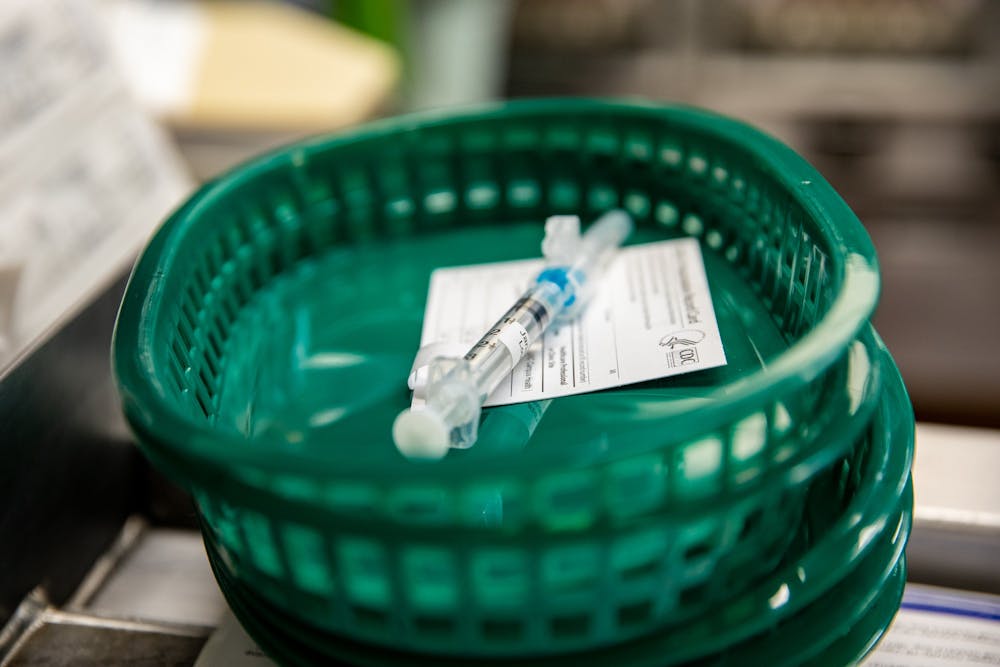The delta variant of COVID-19 has been identified by researchers to have passed its peak, with new cases, hospitalizations and deaths declining in most states. However, with advancements in the booster shot rollout, the virus has continued to be a major point of conversation regarding transmission during the holiday season.
Here is a quick rundown of what’s new in COVID-19 research and development, and what to keep an eye out for in the upcoming months.
New antibody for COVID-19 and variants
Duke and UNC l have been at the forefront of COVID-19 research since the beginning of the pandemic, and that hasn’t changed with 2021 coming to a close. The Duke Human Vaccine Institute identified an antibody that limits the severity of infection from a variety of coronaviruses — those that cause COVID-19 and the original SARS illness.
The antibody has the ability to target and bind to COVID-19 viruses to block them from infecting cells within the body. It was tested at UNC in mice models to identify whether it could effectively block or minimize infections, which it did.
This could potentially translate into new vaccine strategies that are effective for new variants, preventing further pandemic waves.
Animal transmission of COVID-19
A recent study has produced evidence that SARS-CoV-2 spreads rapidly in white-tailed deer — something that’s concerning given their significant population across Chapel Hill. A recent survey of white-tailed deer in the Northeast and the Midwest found that 40 percent of the sampled deer had antibodies against the virus.
The species has since been identified as a reservoir for the virus — meaning that they could carry the virus indefinitely and spread it back to humans periodically. This suggests that eradicating the virus completely on a global or national scale would be virtually impossible.



